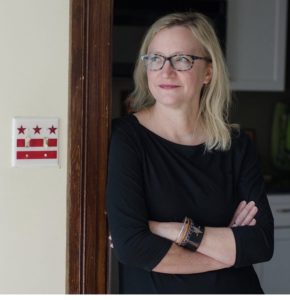
Hello! We’re here today with Kristine Enderle, the Editorial Director of Magination Press. One of the things that intrigues me most is how she came to publishing in such a roundabout way (more on that in a moment!). Her Twitter bio declares her a “full-time mom, all-the-time-feminist, serious ally, and native Hoosier.” In terms of her publishing career highlights, she offers this sample of titles:
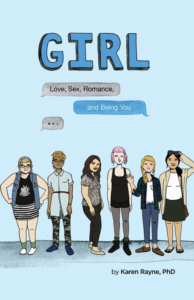 Girl: Love, Sex, Romance, and Being You by Karen Rayne (starred review from Publisher’s Weekly; one of Chicago Public Library’s Best of the Best Nonfiction Teen books)
Girl: Love, Sex, Romance, and Being You by Karen Rayne (starred review from Publisher’s Weekly; one of Chicago Public Library’s Best of the Best Nonfiction Teen books)
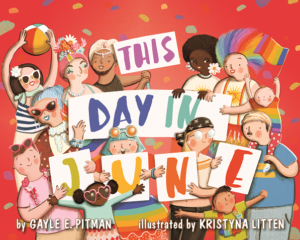 This Day in June by Gayle Pitman (Stonewall Award winner; ALA Office of Intellectual Freedom’s Top 100 Challenged Books)
This Day in June by Gayle Pitman (Stonewall Award winner; ALA Office of Intellectual Freedom’s Top 100 Challenged Books)
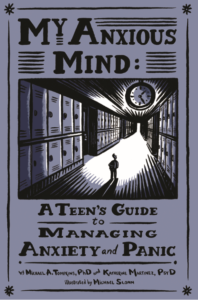 My Anxious Mind: A Teen’s Guide to Managing Anxiety and Panic by Michael Tompkins and Katherine Martinez (ABCT Self Help Book Seal of Merit Award)
My Anxious Mind: A Teen’s Guide to Managing Anxiety and Panic by Michael Tompkins and Katherine Martinez (ABCT Self Help Book Seal of Merit Award)
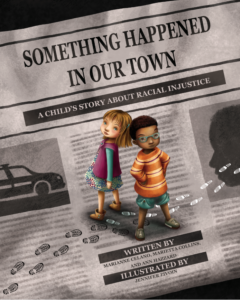 Something Happened In Our Town: A Child’s Guide to Racial Injustice by Marianne Celano, Marietta Collins, and Ann Hazard (A New York Times and #1 IndieBound bestseller, A Little Free Library Action Book Club Selection, and an NCSS-CBC 2019 Notable Social Science Trade Book for Young People)
Something Happened In Our Town: A Child’s Guide to Racial Injustice by Marianne Celano, Marietta Collins, and Ann Hazard (A New York Times and #1 IndieBound bestseller, A Little Free Library Action Book Club Selection, and an NCSS-CBC 2019 Notable Social Science Trade Book for Young People)
Whew! That’s a great start. But let’s move on to the interview to find out a bit more about Kristine and her career.
- https://www.apa.org/pubs/magination
- https://maginationpressfamily.org/
- https://twitter.com/kristinEEnderle
RVC: As mentioned in the intro above, you might win the award for most unusual path toward becoming an editor—at least in terms of industry insider interviews here at OPB! You’ve got a BS degree in microbiology (minor in psychology) from Indiana U, right? What kind of career goals did you have back then?
KE: I honestly didn’t have any career goals! I was lucky enough to be allowed to just study whatever I wanted in college! I grew up in an enormous old house (with actual bats in the attic) in the middle of the woods in southern Indiana. There was always something smashed on the road that we could poke at, or strange insects or fungi living on rotting logs. My dad was a doctor and my mom was a nurse, so there were always ongoing conversations about medicine and health in my house.
RVC: That sounds like an awesome way to grow up.
KE: You bet! I grew to love the natural world and naturally (hah!) that flowed into biology coursework. Eventually after taking a microbiology course, my sights were set on what is unseen and I became fascinated by fungus and bacteria and have a sweet spot for infectious diseases.
RVC: After college, you worked as an AIDS research tech for the AIDS Vaccine Development Program at the National Cancer Institute, and then as a tech at Northwestern University’s Lurie Cancer Center. Isn’t the latter position where you started taking classes in writing?
KE: Yes. While working at Northwestern I took fiction writing, linguistics, and communication courses. I needed to move away from lab work to exercise the other side of my brain. I always hung out with English majors and musicians in school, so I finally got to take all those classes I missed as an undergrad.
RVC: What’s the most valuable thing you learned in those writing classes?
KE: That I am NOT a fiction writer! I have so much appreciation for storytellers and creative people now. Plus it’s more fun to be the oddball science nerd in the room than the way-too-serious poet.
RVC: What was the learning curve like going from a science researcher to a development editor at Human Kinetics, a sports science textbook publisher in Illinois?
KE: Between working in the lab and my first publishing gig, I was a Medical & Scientific Affairs manager at the Alzheimer’s Association. This was pre-Internet, so I wrote newsletters and fact sheets for the general public and answered the phone, fielding a ton of questions from families and caregivers about Alzheimer’s disease. Working there taught me to explain complicated concepts and technical language, so maybe this was what got me from the lab to publishing?
RVC: Sounds like GREAT training to be an editor.
KE: At Human Kinetics as a development editor, I had to look at big picture things in planning a textbook–editing and organization becomes a puzzle to solve as you need to figure out a way to fit and package a ton of information into ways people can understand and into one comprehensive and complete book, visually with photos, diagrams, charts, and graphs. I still do that at Magination. Our books combine science and literature (or evidence-based information and creative expression) into something that is accessible and interesting to read.
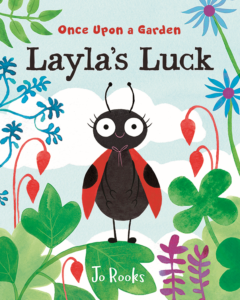 A great example of this is Move Your Mood which is a hoot and teaches readers about how physical movement positively affects mood–there is psychological research to support this. Or Layla’s Luck. People tend to attribute a woman’s or girl’s success as them being lucky and not relating to their smarts, skill, and hard work. Layla takes aim at that.
A great example of this is Move Your Mood which is a hoot and teaches readers about how physical movement positively affects mood–there is psychological research to support this. Or Layla’s Luck. People tend to attribute a woman’s or girl’s success as them being lucky and not relating to their smarts, skill, and hard work. Layla takes aim at that.
RVC: Let’s dig a bit deeper into your publishing career. These days, you’re the Editorial Director at Magination Press. How does that compare to being a developmental editor? Writers ask me versions of this all the time—what’s the difference in terms of those roles?
KE: Editorial director really means that I am responsible for editorial strategy and focus of the press and oversee major initiatives, budgets, planning, and staff. But having come up through the ranks, I am still developing and editing and acquiring books because I have a hard time leaving that behind. I am still a senior/acquiring editor and have a nice group of house authors I have been working with since their debut work. Many authors call me their editor (and that’s the best thing ever!)
RVC: Compare that to the roles of your Magination colleagues, Senior Editor Sarah Fell and Editor Katie Ten Hagen.
KE: Sarah and Katie do all that, minus the planning and overseeing, and have a bunch more books than me to develop. And they work with new authors mostly, and I’m technically their boss!
RVC: Thanks for that!
Now, some people might not realize that Magination Press is connected to the APA (American Psychological Association). How does that work?
KE: APA’s mission is to promote the advancement, communication, and application of psychological science and knowledge to benefit society and improve lives. So what that means for Magination Press is that we share world mental health expertise and psychological knowledge to help kids through rough patches. Some of our books deal with serious issues like depression and anxiety; others are more of those everyday things that bug you or that you may confront sometime during your life. Also just recognizing the sometimes-tough job of being a kid these days. We want kids and teens to know that we are listening, we see what they are dealing with, and might have something that can help.
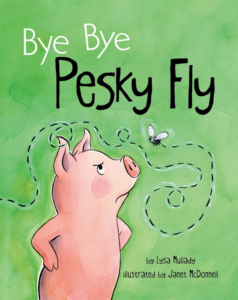 I’d like to think that books like Bye Bye Pesky Fly, Lucy’s Light, Jacob’s Room to Choose, and Lulu the One and Only really make a difference in the lives and well-being of kids.
I’d like to think that books like Bye Bye Pesky Fly, Lucy’s Light, Jacob’s Room to Choose, and Lulu the One and Only really make a difference in the lives and well-being of kids.
RVC: Here’s something else that people might be surprised by. Not only do you publish books exclusively for kids (ages 4–18), but you’re putting out 20+ books a year!
KE: Yeah. We are kind of overachievers that way.
RVC: What’s the common denominator with all your kidlit?
KE: The stories (and nonfiction) really must be grounded in evidence-based research. It’s true that there is a little bit of psychology in everything, but to be a publication of the American Psychological Association, the work must be based on science and fact. It would be irresponsible otherwise!
RVC: How vital is it that your writers have backgrounds in psychology or the sciences? Or know APA style?
KE: We prefer our authors be psychologists or are mental health professionals, but it’s not a prerequisite. If an author doesn’t have those credentials, we will hire a psychologist to write the endmatter/readers note (to provide the psychological context for the story). Also all of our books are reviewed by our editorial advisory board that is made up of child psychologists. They act as peer reviewers and comment on the accuracy and relevancy of the psychological content and whether the coping strategies have merit.
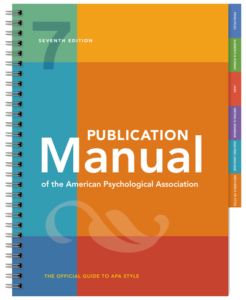 Extra points for folks using APA Style/Pub Manual 7!
Extra points for folks using APA Style/Pub Manual 7!
RVC: Let’s say you publish a picture book on depression and so, too, does a NYC press. What are some of the likely differences in how a Magination picture book covers a topic like that?
KE: Reviewed and vetted by the American Psychological Association, maybe?
RVC: That’s a key distinction, for sure.
Now, you just signed When Nana Dances, a picture book by Jane Yolen and her granddaughter about the relationship between children and grandparents, and how dance can be at its core. This isn’t as clear of an “issue book” as some of your others. Why did you have to snatch this one up?
KE: Because Jane Yolen!
No, really it’s a joyful celebration that combats ageism and models mentally healthy and happy intergenerational relationships. You know that emotional stress can speed up aging at the cellular level. So, this is stress-relief and mental wellness at its core!
RVC: Your press is always at the trade shows—in fact, that’s how I learned about it. I chatted with one of your sales reps at BEA (Book Expo America) at the Javits Center in NYC a couple years ago, and I was impressed by the quality of the books and topics covered.
KE: Thank you! You can find us all over, from the Bologna Children Book Fair to the Texas Library Association annual meeting to National Council for Teachers of English. We also attend psychological conferences like American Counseling Association, and of course APA’s Annual Convention.
RVC: For people considering writing for your press, what’s the most important thing they should know or understand?
KE: Despite our serious and sensitive topics, we love humor, humility, and honesty. Not sure what that means exactly for books… might speak more to who we are and our community of authors and illustrators we take up with.
Otherwise a couple things come to mind:
- Do your research. Before submitting a proposal, please review our catalog: we don’t repeat topics year after year and are unlikely to acquire new titles on already-covered topics.
- Keep it universal. We are not interested in autobiography, reflections on childhood, or personal stories about family members, pets, or friends. Keep the appeal wide and general and keep the focus on interesting characters and good storytelling. Be careful with first-person narrative. Good stories and excellent topics can sour with unrealistic, adult-sounding, or dated dialog.
RVC: In all your experience with editing picture books, what has most surprised you?
KE: Just how many books I have signed after just reading the cover letter. Another book hooked me immediately with its proposed title–There’s a Cat in My Class!
RVC: One final question for this part of the interview. Your Twitter bio says you’re a “part-time troublemaker.” Care to support that impressive claim with evidence?
KE: I live in the Capitol Hill neighborhood in Washington, DC. Marching and protesting is what we do!
RVC: Okay, Kristine. We’ve now reached the SPEED ROUND. Speedy questions and even faster answers. Ready?
KE: Ready!
RVC: “If I didn’t have a career in publishing or science, I’d be…”
KE: A park ranger!
RVC: Fave secret lunch spot in DC?
KE: Indigo!
RVC: If you could be any picture book character for a day, who would it be?
KE: Nancy Drew!
RVC: Something that’s on your picture book wish list?
KE: A book about a whale.
RVC: An underappreciated Magination picture book that you simply adore?
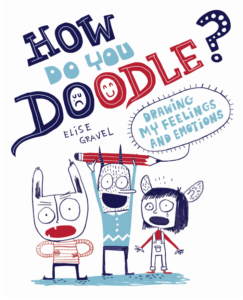 KE: Underappreciated? I’m a huge fan of King Calm: Mindful Gorilla in the City. But I also adore our more recent relatively unknown activity book, How Do You Doodle: Drawing Your Feelings and Emotions.
KE: Underappreciated? I’m a huge fan of King Calm: Mindful Gorilla in the City. But I also adore our more recent relatively unknown activity book, How Do You Doodle: Drawing Your Feelings and Emotions.
RVC: The one must-have for every picture book you acquire?
KE: A good pun or a dog.
RVC: Thanks so much, Kristine!

